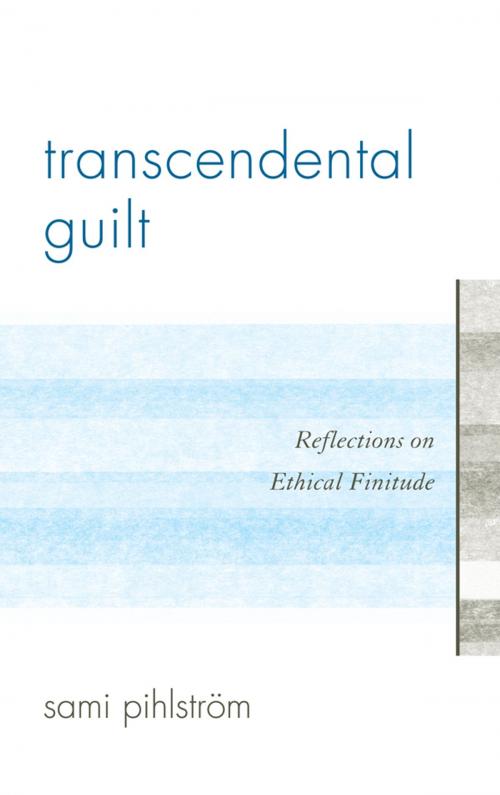Transcendental Guilt
Reflections on Ethical Finitude
Nonfiction, Religion & Spirituality, Philosophy, Good & Evil, Ethics & Moral Philosophy| Author: | Sami Pihlstrsm | ISBN: | 9780739167052 |
| Publisher: | Lexington Books | Publication: | March 17, 2011 |
| Imprint: | Lexington Books | Language: | English |
| Author: | Sami Pihlstrsm |
| ISBN: | 9780739167052 |
| Publisher: | Lexington Books |
| Publication: | March 17, 2011 |
| Imprint: | Lexington Books |
| Language: | English |
In Transcendental Guilt: Reflections on Ethical Finitude, Sami Pihlstr#246;m argues that the concept of guilt is fundamental to moral philosophy and to our self-understanding as moral agents. As the author emphasizes the constitutive role played by this concept, or by our capacity to experience the corresponding moral emotion(s), he labels the both ethically and metaphysically fundamental kind of guilt to be discussed transcendental guilt. However, the book does not merely illuminate this specific ethical concept. It also seeks to intensify our understanding of the nature of moral thought itself, especially of the seriousness of the moral point of view. Thus, Transcendental Guilt poses a challenge to our ethical self-conceptions, and also to our philosophical attempts to understand them. This book does not attempt a new ethical theory. Rather, it is critical of the very idea of ethical theory, especially if by ethical theory we mean a systematically organized structure setting us universal or absolute moral norms and principles. Nor does Pihlström engage in metaethical theorizing about the meaning of ethical concepts. Rather, the book engages in moral reflection, which is something significantly broader than (meta)ethical theorizing. In moral reflection, we are not establishing theoretically justified normative principles or constructing theories about the meaning of moral language; instead, we are reflecting on our finite human lives_our lives with other human beings_as presenting us with personal yet fundamental moral demands. Moreover, the moral reflection practiced in the book is both historically informed and philosophically systematic. Scholars, graduate or advanced undergraduate students, and general educated readers interested in fundamental issues in ethics will appreciate the novel perspective presented, which challenges mainstream ideas about moral theories and the foundations of ethical thought.
In Transcendental Guilt: Reflections on Ethical Finitude, Sami Pihlstr#246;m argues that the concept of guilt is fundamental to moral philosophy and to our self-understanding as moral agents. As the author emphasizes the constitutive role played by this concept, or by our capacity to experience the corresponding moral emotion(s), he labels the both ethically and metaphysically fundamental kind of guilt to be discussed transcendental guilt. However, the book does not merely illuminate this specific ethical concept. It also seeks to intensify our understanding of the nature of moral thought itself, especially of the seriousness of the moral point of view. Thus, Transcendental Guilt poses a challenge to our ethical self-conceptions, and also to our philosophical attempts to understand them. This book does not attempt a new ethical theory. Rather, it is critical of the very idea of ethical theory, especially if by ethical theory we mean a systematically organized structure setting us universal or absolute moral norms and principles. Nor does Pihlström engage in metaethical theorizing about the meaning of ethical concepts. Rather, the book engages in moral reflection, which is something significantly broader than (meta)ethical theorizing. In moral reflection, we are not establishing theoretically justified normative principles or constructing theories about the meaning of moral language; instead, we are reflecting on our finite human lives_our lives with other human beings_as presenting us with personal yet fundamental moral demands. Moreover, the moral reflection practiced in the book is both historically informed and philosophically systematic. Scholars, graduate or advanced undergraduate students, and general educated readers interested in fundamental issues in ethics will appreciate the novel perspective presented, which challenges mainstream ideas about moral theories and the foundations of ethical thought.















